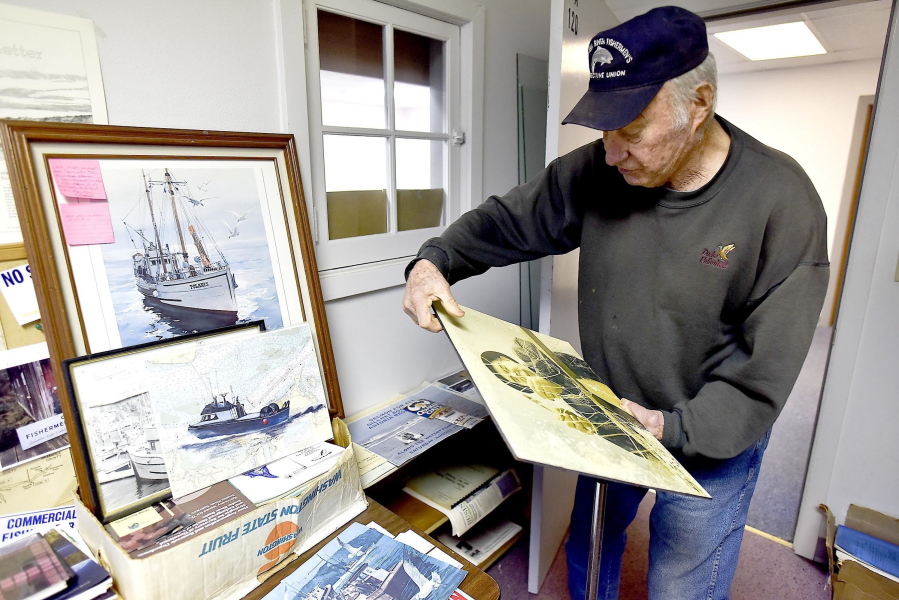ASTORIA, Ore. — They cleaned out the office after Christmas.
Into the moving van went the old signs and the newspaper clippings documenting achievements and battles for river fisheries. Out went the boxes filled with index cards listing the names of past Columbia River Fishermen’s Protective Union members — and the dates they died. And the faded photographs and paintings of fishing boats that have sunk, sold or come to rest in museums. And boxes of old Columbia River Gillnetter magazines, a union publication founded in 1969.
Jon Westerholm, who has edited the Gillnetter since 2003, sifted through papers as his son, Erik, loaded the van. Each picture of a fishing boat sparked a memory, sometimes the name of the fisherman who had owned it. But, Westerholm would often note, “He’s gone now.”
The office was a collection of vanished and vanishing things.
For years, Westerholm kept the union office open as a volunteer. In addition to editing and publishing the Gillnetter, he also coordinated a recycling program to gather up old gillnets. But at 83 years old, he is transitioning into a different phase of his life. A new issue of the Gillnetter hasn’t gone out since 2015.
“I’m not ready to throw in the towel,” said union president Darren Crookshanks, a commercial fisherman based out of Longview. At 49, he’s the union member Westerholm and secretary Jack Marincovich call “the young guy.”



